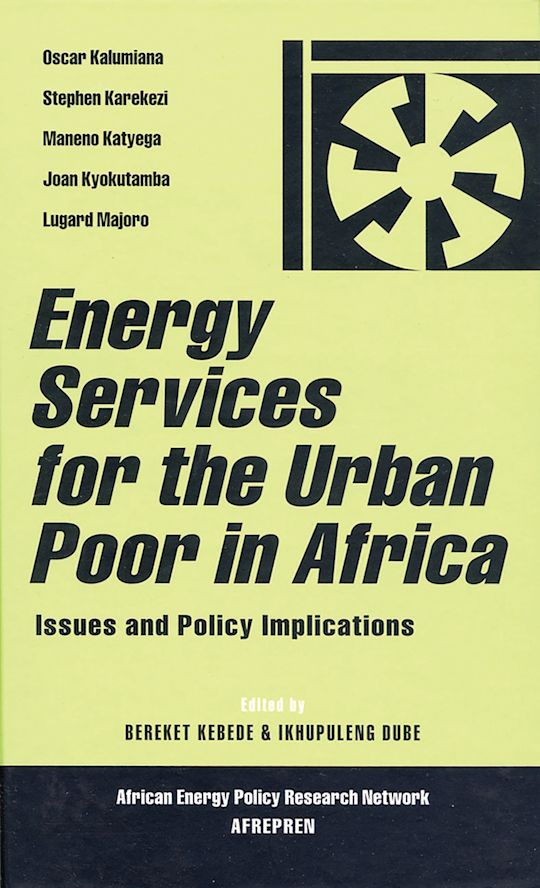- Home
- ACADEMIC
- African & Africana Studies
- Aid and Development in Africa
- Energy Services for the Urban Poor in Africa
Energy Services for the Urban Poor in Africa
Issues and Policy Implications
Energy Services for the Urban Poor in Africa
Issues and Policy Implications
This product is usually dispatched within 10-14 days
- Delivery and returns info
-
Free UK delivery on orders £30 or over
You must sign in to add this item to your wishlist. Please sign in or create an account
Description
Africa has been experiencing higher rates of urbanization than any other continent, and today about one-third of the continent's population live in urban areas. But studies of energy services for urban residents, especially the poor, are still rare. The supply of electricity to poor city dwellers has not kept pace with urbanisation: in 1970 some 40 million had no access to electricity; by the year 2000 there were over 100 million. The urban poor continue to rely on wood fuel, charcoal, kerosene and dung cakes for energy, with all their environmental drawbacks.
This book examines the affordability of modern energy sources for the poor; the relevance of energy subsidies; the impact of subsidies on public finances; and how electricity tariffs affect the operations of small and medium enterprises, the main source of livelihood for the majority of the urban poor outside the formal economic sector.
Table of Contents
1. Regional Report - Stephen Karekezi and Lugard Majoro
2. Research Methodology and Approach - Bereket Kebede and Ikhupuleng Dube
3. Zambia - Oscar Kalumiana
4. Zimbabwe - Ikhupuleng Dube
5. Ethiopia - Bereket Kebede
6. Tanzania - Maneno Katyega, with Norbert Kahyoza
7. Uganda - Joan Kyokutamba
Product details
| Published | 01 Aug 2004 |
|---|---|
| Format | Paperback |
| Edition | 1st |
| Extent | 320 |
| ISBN | 9781842775592 |
| Imprint | Zed Books |
| Dimensions | Not specified |
| Series | African Energy Policy Research |
| Publisher | Bloomsbury Publishing |
About the contributors

ONLINE RESOURCES
Bloomsbury Collections
This book is available on Bloomsbury Collections where your library has access.



































